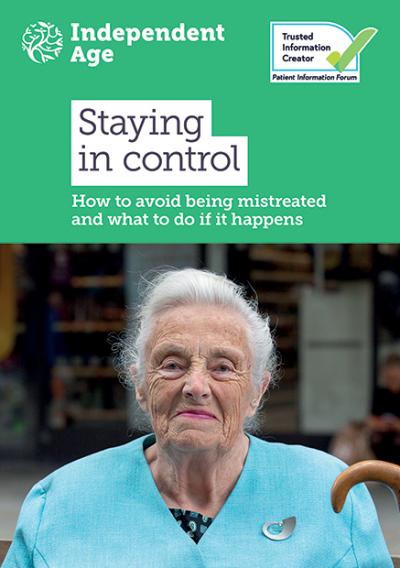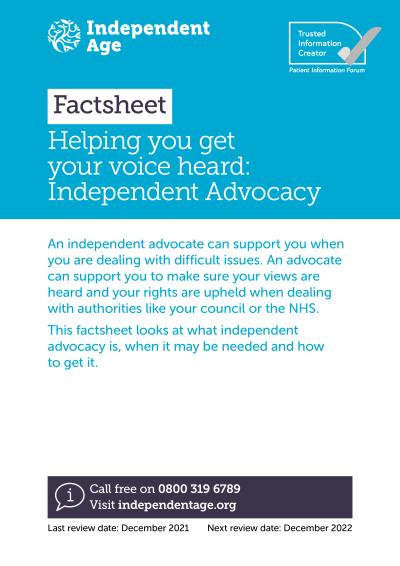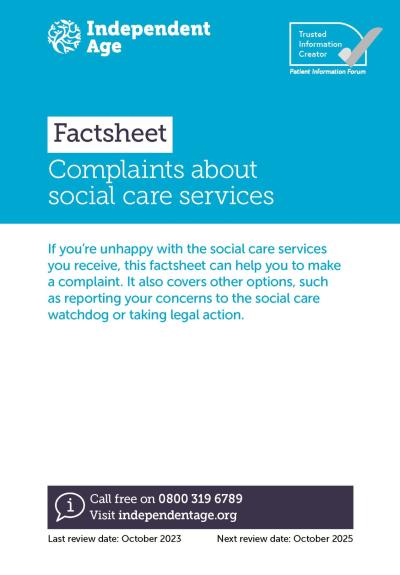Related publications

Staying in control

Helping you get your voice heard: Independent advocacy

Dealing with professionals in the care or health system can sometimes feel intimidating and you may find it difficult to express your views. If you need support, an independent advocate can help you say what you want, get the information you need and make sure your rights are protected.
Advocacy services help people – especially the most vulnerable – to be involved in the decisions that affect their lives. The health and care system can seem complex and confusing and saying what you want can be stressful, especially if you need ongoing support.
An advocate can:
An independent advocate may be helpful if there is any disagreement between you, your health or social care professionals or even family members about a decision that needs to be made.
An independent advocate should represent your wishes without judging or giving a personal opinion. You might not get the outcome you want but an advocate can make sure your voice is heard.
You might want to have an advocate with you or to speak on your behalf in the following situations:
There are different types of advocacy, ranging from self-advocacy - where you receive training to help you put your own views across - to professional advocacy. Some independent advocates are trained specifically to communicate and work with people with dementia and other mental health problems. An advocacy service may be run by volunteers.
Advocacy services should be separate from the NHS or social services so they can be independent. For more information, see our factsheet Helping you get your voice heard: Independent Advocacy.
It’s up to you how you work with an advocate. You are in charge and they need your permission to support you or express your views. Usually:
Your advocate might listen to the views of others (your GP, carers, social worker, family), but their role is to help you put your views across.
Advocacy is usually free of charge.
An advocate should be on your side. They shouldn’t:
Local councils (local authorities in Scotland) must involve people in decisions about their care and support. No matter how complex your needs, they are required by law to help you:
In certain situations you are legally entitled to an advocate from your local council. This is called statutory advocacy and is always free. There are three types available in England and Wales:
In Scotland, contact the Scottish Independent Advocacy Alliance to find out about your options for help.
Mental capacity means having the ability to understand, retain and use information to make and express decisions about your life. Mental capacity can fluctuate and it must never be assumed that someone lacks mental capacity. Doing so could deprive them of their rights.
Your local council should be able to provide information about advocacy services in your area. You may also want to contact an organisation that deals with your specific needs.
OPAAL is a national organisation supporting independent advocacy services for older people. Your local Healthwatch may be able to help you with complaints advocacy or put you in touch with local services (in Wales, contact your local Community Health Council and, in Scotland, contact the Patient Advice and Support Service). The mental health charity Mind can put you in touch with local advocacy services in England and Wales.
In Scotland, contact the Scottish Independent Advocacy Alliance for help finding an advocate. Disability Information Scotland can also help you find local advocacy services.
This short video, from the charity OPAAL (embedded with their kind permission), features Mike, who talks about the impact of his cancer diagnosis and how things changed for him when he was introduced to Bob, his volunteer peer advocate.

Contact your local council to find out about advocacy services in your area. You can find their contact details on gov.uk/find-local-council.
For more information about advocacy and the NHS, visit the NHS website.
By calling Independent Age's free and impartial Helpline, you can get information and advice from one of our friendly advisers, or order our free guides.